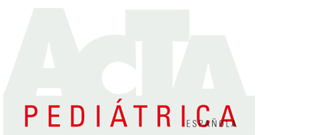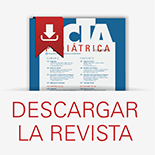Resumen
En los últimos años se ha producido en España un aumento de la inmigración y de la adopción internacional. Los niños provienen generalmente de países en vías de desarrollo con coberturas vacunales bajas. En todo niño inmigrante o adoptado se debe realizar lo antes posible una evaluación de su estado vacunal y, en función de éste, completar las inmunizaciones, hasta adaptarlo al calendario de cada una de las comunidades autónomas (idealmente el recomendado por la Asociación Española de Pediatría).
Sólo hay que tener en cuenta las vacunas de las que se disponga de información fiable por escrito (teniendo en cuenta el número de dosis, el intervalo y la edad a la que se administraron), y considerar que toda «vacuna administrada es vacuna válida». En general, ante la duda, es preferible revacunar; alternativamente se pueden realizar determinaciones serológicas (difteria, tétanos, poliovirus 1-2 y 3, sarampión, rubéola y parotiditis). Se debe optar por pautas de vacunación rápida, inyectando el mayor número de dosis posibles a la vez y aprovechando cualquier visita para su administración. No se administran de modo sistemático en países en vías de desarrollo la vacuna heptavalente frente al neumococo, la vacuna Hib-conjugada ni la vacuna frente al meningococo C y frente a la varicela.
Abstract
Immigration and international adoptions in Spain have increased over recent years. In general, the children come from developing countries with low vaccination coverage. An assessment of the vaccination status of every immigrant child or adopted child should be carried out as soon as possible. Depending on the results of the assessment the necessary vaccines should be given, until the child is up to date with the ca¬lendar of each of the Autonomous Communities (ideally the calendar recommended by the AEP, the Spanish Association of Paediatrics).
Only those vaccines for which reliable, written information is available should be taken into consideration (taking into account the number of doses, the interval and the age at which they were given) and an «administered vaccine» should be considered to be a «valid vaccine». In general, when in doubt, it is preferable to revaccinate; alternatively, certain serologic tests can be carried out (diphtheria, tetanus, poliovirus 1-2 and 3, measles, rubella and parotitis). Quick vaccination schedules should be chosen, injecting the highest possible number of doses at once and taking advantage of any visit for its administration. In developing countries the following vaccines are not systematically administered: the heptavalent vaccine against pneumococcal disease, the Hib conjugate vaccine, the vaccine against meningococcal C disease and against chicken pox.














